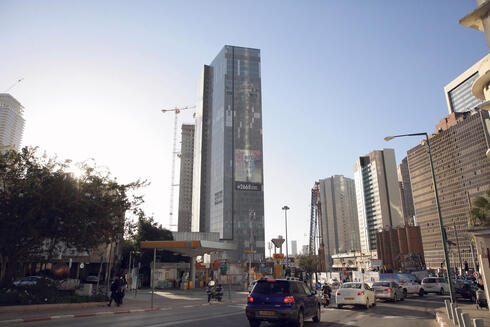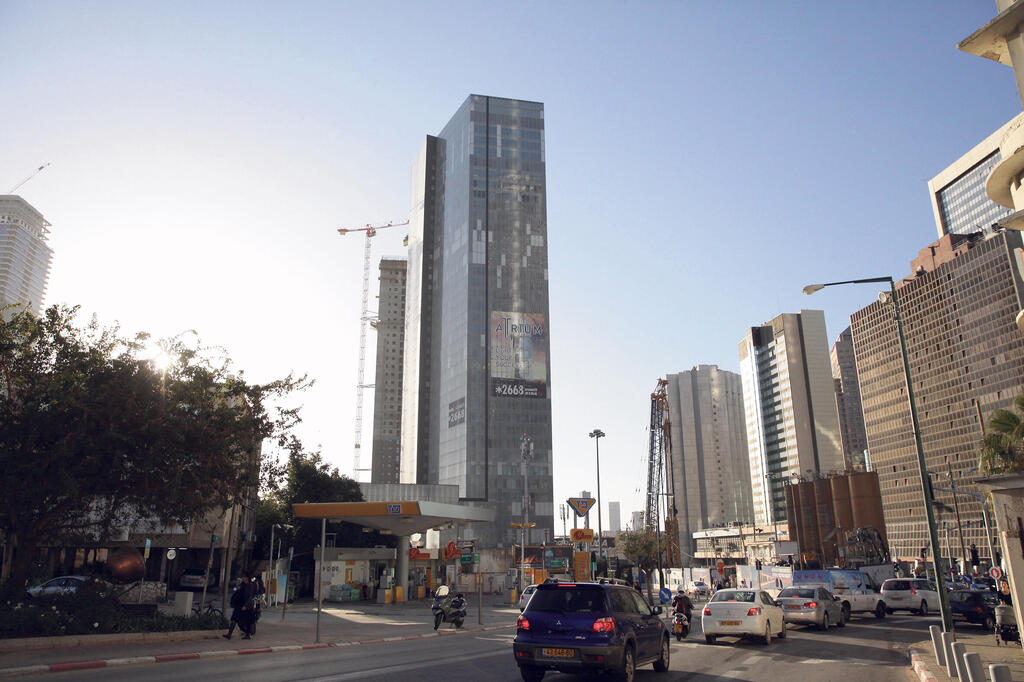
High-tech decline begins to weigh on office rentals
The average rent for office leases signed by the real estate investment firm Amot in the first half of the year declined for the first time since 2020. The CEO attributed this decline to high-tech tenants delaying investments and hiring.
The Israeli high-tech sector has been experiencing a slowdown since 2022, due to a series of blows that have hit it and the economy: interest rates have risen to unprecedented levels due to the fight against inflation, the judicial overhaul has driven away foreign investors, and the war in Gaza broke out at the end of 2023.
Throughout this period, technology companies, even the largest ones, have carried out significant layoffs and cutbacks, including reductions in office space, after aggressively expanding their real estate footprint in 2020-2021. However, these trends have been absent from the reports of commercial real estate companies, which have continued to show increasing revenues and rising rents in new contracts.
Everyone explained the mystery by saying that public real estate companies are the largest companies in their field, their assets are prestigious assets located in the heart of high demand, and their tenants are particularly strong.
But today, something may have changed and a first crack has appeared. The real estate company Amot, one of the largest in the country, published its reports for the second quarter and the first half of 2024, and it emerges from them that the new contracts signed for office rentals during the first half showed a decrease in the average price - for the first time since 2020, when the company began reporting on new contracts by sector.
Although this is an almost negligible decrease of 1%, to an average price of 78 shekels per square meter per month, the symbolism of this cannot be ignored, and the fact that if this is happening with the large Amot, it is reasonable to assume that more significant declines are occurring with smaller and non-public players operating in areas outside of the Greater Tel Aviv area.
Amot, controlled by Alony Hetz (51%) which is controlled by Nathan Hetz, owns 113 income-generating properties with a value of 16.3 billion shekels. The office sector is its core business. Office properties account for 49% of the asset portfolio, in terms of value, and provided 47% of net operating income (NOI) in the second quarter.
Most of its office properties are concentrated in the Greater Tel Aviv area, including the ToHa Tower, the Atrium Tower in the City Ramat Gan complex, and the Amot Investments Tower, in central locations and close to major transportation routes, and therefore also enjoy high occupancy rates and high demand. However, even these properties are not immune to the decline in rent.
During the first half of the year, Amot signed 121 new office lease contracts. These include new tenants, contract extensions, and the exercise of contract extension options. These contracts account for 52% of the contracts signed this year. As mentioned, these contracts showed a 1% decrease in the average price paid per square meter per month.
Amot did not report second-quarter data but only data on the first six months, but since there was a 3% increase in the first quarter, the decline in the second quarter was sharper.
In the investor call held to discuss the published reports, CEO Shimon Abudraham explained the decline by saying that "there is an increase in requests to continue renting the property as is, without investing in its renovation. There is no investment component, and therefore the overall rental price will usually be lower." This is a change of trend from the heady days of high-tech in 2020, when companies often used lease renewals to expand or renovate their offices. However, Abudraham emphasized that since Amot is not required to perform any work on the properties, the profitability for the company will be higher from these contracts.
To a large extent, this data is a natural continuation of what has been happening in Israel in recent years. Amot has been warning for a long time about the impact of the business environment on its results, and in the quarterly report emphasized that "the slowdown in the pace of investment in Israeli high-tech, which is the main engine of the economy, continues to negatively impact market sentiment."
In the investor call, Abudraham said, "We are seeing a general aversion to risk-taking, delays in investments and hiring, a decrease in the opening of new businesses and requests for growth space, and this is mainly affecting buildings that are being occupied for the first time." For example, the company's office campus in Holon, which it is struggling to occupy. According to him, "War, political unrest, and expensive money are causing a poor business sentiment, and slowing down the entry of new blood into the properties."
While rental prices have declined for the first time, Amot's capitalization rates have been on the rise for three years, and the weighted average capitalization rate derived from its income-generating real estate has stabilized at the end of the half-year at 6.45% compared to 6.3% at the end of 2023 and 6.08% in December 2021.















